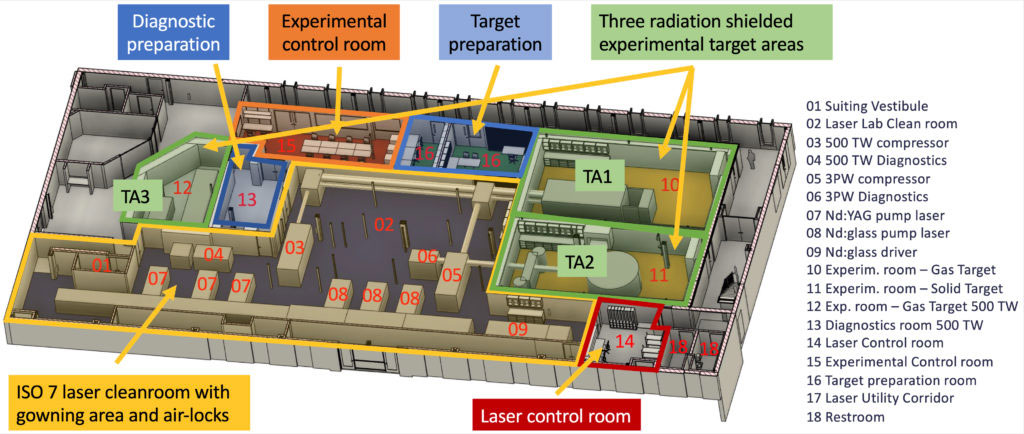The National Science Foundation funded the construction of the 3 petawatt ZEUS laser facility at the University of Michigan. The facility was commissioned in October 2023. ZEUS operates as an NSF sponsored user facility, offering external users experimental access using a merit-based peer reviewed proposal system to advance science frontiers and enable discovery.
The name ZEUS (Zettawatt-Equivalent Ultrashort pulse laser System) refers to the interaction of a PetaWatt laser pulse colliding with a GeV energy electron beam that can be generated by one of its two beamlines. This geometry provides the equivalent of a “Zettawatt” power laser interaction (1021 Watts) in the rest frame of the electron beam. It will consequently allow exploration of fundamental yet unanswered questions regarding non-linear quantum electrodynamics in relativistic plasmas, including non-perturbative quantum radiation reaction and electron-positron pair production mechanisms. In addition, there will be a long-pulse shock driver that can be used with one of the other beams.
Further experiments enabled by this facility will include pump-probe experiments using femtosecond x-rays as a probe of material dynamics on ultra-short timescales, the production of GeV ion beams, the generation of instabilities in electron-positron jets, the exploration of vacuum polarization effects, relativistic astrophysical shocks, and the production of pions and muons. Once completed, the ZEUS laser system will be the highest-power laser system in the US and will be among the highest-power lasers worldwide for the next decade. Primary support for the project is provided by the NSF Mathematical and Physical Sciences Office of Multidisciplinary Activities and the Division of Physics.
The ZEUS user facility is enclosed in ~16,000 square feet of space with 5,000 sf of cleanroom housing the laser and beam delivery systems, 2,500 sf of shielded experimental laboratories, 1,250 sf of auxiliary fabrication, 2,500 sf of immediate meeting and office space, with the remainder of the space dedicated to various support functions. Being located within the UM’s College of Engineering, it is within walking distance of the Lurie Nanofabrication Facility, the Neutron Science Laboratory, The Electron and Micro-beam Analysis Laboratory and all of the departments of the college. Building renovation was completed at the end of 2021.


 MENU
MENU 
